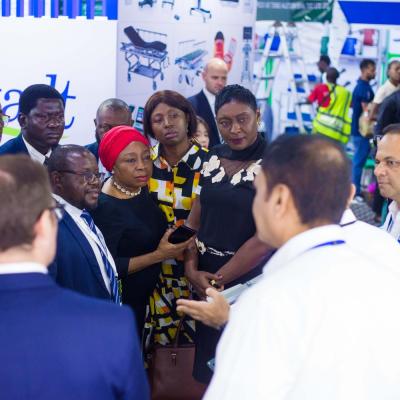Frontpage News (3259)
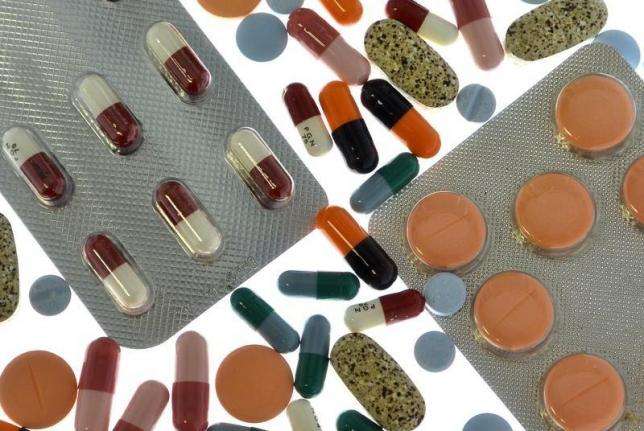 Global growth of unregulated over-the-counter and Internet sales of precious antibiotic medicines is further fuelling the rise of deadly, drug-resistant "superbug" bacteria, according to a UKgovernment-commissioned review. In recent decades, bacteria resistant to multiple drugs have evolved at the same time as drugmakers have cut back investment in finding new ways to fight them, creating a global health threat as superbug strains of infections like tuberculosis and gonorrhoea have become untreatable. In a report published on Friday amid international alarm about the discovery in China of a gene that makes bacteria resistant to all known antibiotics, former Goldman Sachs chief economist Jim O'Neill said the threat is exacerbated by patients self-medicating with drugs from online pharmacies.
Global growth of unregulated over-the-counter and Internet sales of precious antibiotic medicines is further fuelling the rise of deadly, drug-resistant "superbug" bacteria, according to a UKgovernment-commissioned review. In recent decades, bacteria resistant to multiple drugs have evolved at the same time as drugmakers have cut back investment in finding new ways to fight them, creating a global health threat as superbug strains of infections like tuberculosis and gonorrhoea have become untreatable. In a report published on Friday amid international alarm about the discovery in China of a gene that makes bacteria resistant to all known antibiotics, former Goldman Sachs chief economist Jim O'Neill said the threat is exacerbated by patients self-medicating with drugs from online pharmacies.
He called on governments, regulators and Internet companies worldwide to clamp down on unlicensed Internet sales of antibiotics and to improve monitoring of drug quality. "Even in those countries where it's next to impossible to buy antibiotics over-the-counter in a shop, it's still often the case that an unscrupulous online pharmacy is just a few clicks away," O'Neill said in a statement with his report. Chinese and British scientists said on Thursday they had found new gene in samples from people and animals that makes bacteria highly resistant to a last-resort class of antibiotics known as polymyxins.
UBTH NANNM Extends Ultimatum by Seven Days, Threaten Indefinite Strike Action
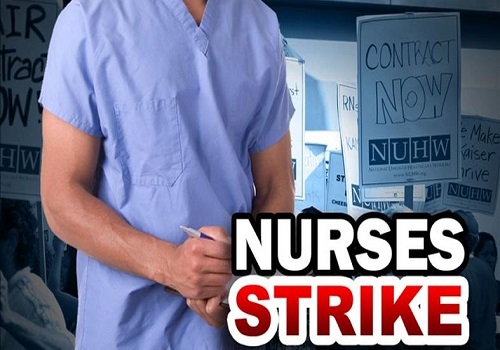 The National Association of Nigerian Nurses and Midwives chapter of the University of Benin Teaching Hospital has once again shown maturity and displayed magnamosity in its bid to fight the injustice against the Nurses by the UBTH Management. You would recall that the UBTH NANNM had earlier issued the management a 14Day Ultimatum to meet their 6 point demands. The ultimatum was set to elapse on the 19th of November 2015 culminating in an indefinite strike action. But the UBTH NANNM Executives arising from a congress meeting held on the 17th of november had deemed it fit and resolved to extend the ultimatum by one week
The National Association of Nigerian Nurses and Midwives chapter of the University of Benin Teaching Hospital has once again shown maturity and displayed magnamosity in its bid to fight the injustice against the Nurses by the UBTH Management. You would recall that the UBTH NANNM had earlier issued the management a 14Day Ultimatum to meet their 6 point demands. The ultimatum was set to elapse on the 19th of November 2015 culminating in an indefinite strike action. But the UBTH NANNM Executives arising from a congress meeting held on the 17th of november had deemed it fit and resolved to extend the ultimatum by one week Crisis Looms In Nigeria’s Health Sector As Donor Partners Withdraw Funds
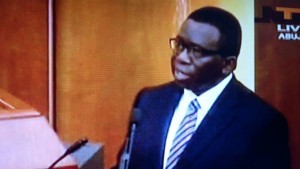 Nigeria’s health sector heavily dependent on international donor funds may witness a reversal of current gains if the country does to tackle this problem as donors withdraw such funds. From the fight against HIV to poliomyelitis, Nigerian government contributes just a little of 20 percent of such disease responses. With Nigeria currently rated as Africa’s biggest economy, the country is no longer qualified to received many of the international donor grants meant for poor world countries still struggling to archive minimum standards of health and education.
Nigeria’s health sector heavily dependent on international donor funds may witness a reversal of current gains if the country does to tackle this problem as donors withdraw such funds. From the fight against HIV to poliomyelitis, Nigerian government contributes just a little of 20 percent of such disease responses. With Nigeria currently rated as Africa’s biggest economy, the country is no longer qualified to received many of the international donor grants meant for poor world countries still struggling to archive minimum standards of health and education.
The Director-General of the National Agency for the Control of AIDS (NACA) Professor John Idoko told LEADERSHIP on Tuesday that Nigerian government funding for HIV activities is worrisome. He said “We signed an agreement with our biggest donor in 2011 that by 15, Nigeria should be able to fund HIV related activities to 50 per cent.” According to Idoko, up till now, government funding for HIV is still below 25 per cent. “Clearly we are not doing well, we are the second most burdened country after South Africa. South Africa has about six million people with HIV and it contributes 90 per cent of funding for its HIV response. Currently, they have over three million people on drugs,” he said at a press conference to commence this year’s world AIDS day in Abuja.
German Pharma Provides Nigeria $5m Worth Of Drugs To Tackle Schistosomiasis
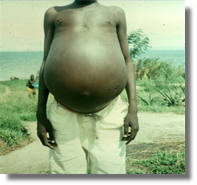 A German pharmaceutical giant, Merck, has donated some praziquantel tablets worth $5million US dollars to Nigeria to fight Schistosomiasis, a new form of tropical disease prevalent in Africa. An estimated 249million people are reported to suffer from the disease, globally with more than 90 percent of those affected living in sub-saharan Africa and 64million patients, predominantly school aged children treated so far from the disease.
A German pharmaceutical giant, Merck, has donated some praziquantel tablets worth $5million US dollars to Nigeria to fight Schistosomiasis, a new form of tropical disease prevalent in Africa. An estimated 249million people are reported to suffer from the disease, globally with more than 90 percent of those affected living in sub-saharan Africa and 64million patients, predominantly school aged children treated so far from the disease.
Schistosomiasis which is listed as one of the 17 neglected tropical diseases (NTDs) prioritized by the World Health Organisation is said have killed more than 200,000 people. The disease which usually showcases symptoms of learning disabilities and anemia in children is caused by flatworms and spread through stagnant water. Over 290million praziquantel tablets have so far been distributed by the German government to countries in sub saharan Africa, including Nigeria.
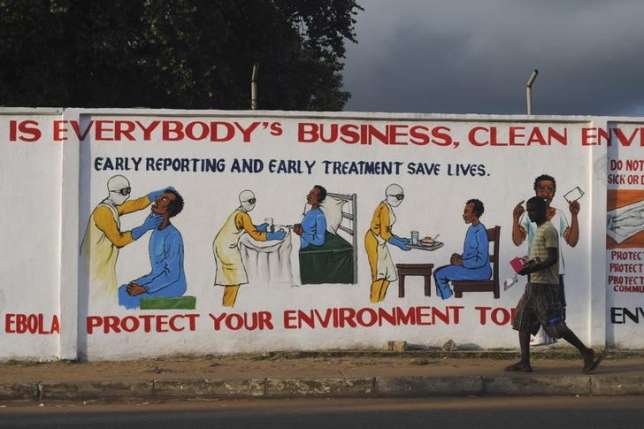 A failure to send a suspected Ebola patient directly to a specialist treatment unit in a fresh outbreak of the virus inLiberia may reflect fatigue and complacency among health workers, a health expert said on Tuesday. Liberia has placed 153 people under surveillance after three Ebola cases emerged on Friday, more than two months after theWest African country was declared free of the virus. The first of the new patients was 15-year-old Nathan Gbotoefrom Paynesville, a suburb east of the capital Monrovia, and his father and brother have since been confirmed as positive.
A failure to send a suspected Ebola patient directly to a specialist treatment unit in a fresh outbreak of the virus inLiberia may reflect fatigue and complacency among health workers, a health expert said on Tuesday. Liberia has placed 153 people under surveillance after three Ebola cases emerged on Friday, more than two months after theWest African country was declared free of the virus. The first of the new patients was 15-year-old Nathan Gbotoefrom Paynesville, a suburb east of the capital Monrovia, and his father and brother have since been confirmed as positive.
The teenager went to several health centres before being referred to an Ebola treatment unit and several health workers who cared for him may have not worn protective equipment, said Medecins Sans Frontieres (MSF) representative Carissa Guild. "Normally with a surveillance system, if someone has signs and symptoms (of Ebola) they would not be hospitalised but immediately sent to an Ebola treatment centre to be tested." "There were no cases for a while and Liberia was nearing the end of a 90-day period of heightened surveillance... it is quite possible that people were tired and got complacent," Guild said.
 The UN Children’s Fund (UNICEF) says 80 per cent of maternal deaths are caused by unhygienic delivery practices at Primary Health Care Centres (PHCs) nationwide. Mr Bioye Ogunjobi, the UNICEF Water, Sanitation and Hygiene (WASH) Specialist, made the disclosure at the National Stakeholders’ Workshop on Draft Hygiene Promotion Strategy and Guidelines in Abuja. According to him, effective provision of WASH facilities will go a long way to promote safe health care. He explained that in Nigeria, many PHCs do not adhere to minimum WASH standards to provide adequate and safe levels of health care.
The UN Children’s Fund (UNICEF) says 80 per cent of maternal deaths are caused by unhygienic delivery practices at Primary Health Care Centres (PHCs) nationwide. Mr Bioye Ogunjobi, the UNICEF Water, Sanitation and Hygiene (WASH) Specialist, made the disclosure at the National Stakeholders’ Workshop on Draft Hygiene Promotion Strategy and Guidelines in Abuja. According to him, effective provision of WASH facilities will go a long way to promote safe health care. He explained that in Nigeria, many PHCs do not adhere to minimum WASH standards to provide adequate and safe levels of health care.
He added that “reports say 80 per cent of maternal deaths are caused by unhygienic delivery practices in PHCs across the country. “However, for a PHCs to work well, they must have good source to water, safe excreta disposal, drainage, hospital waste and hygiene promotion facilities.’’ The WASH specialist said it was worthy to note that inadequate access to water, sanitation and hygiene facilities were known to cause 10 out of 100 hospitalisations in Nigeria. He stressed the need for stakeholders to see access
 As doctors in England prepare for strike action next month, researchers at Harvard Medical School and Brigham and Women's Hospital (Boston, USA) show that, in high-income countries, "patients do not come to serious harm during industrial action provided that provisions are made for emergency care." In The BMJ today, David Metcalfe and colleagues report that death rates remained the same, or decreased, during all previous doctor strikes that have been studied in developed countries. They say that strikes can therefore be organised in such a way that patient safety is not compromised.
As doctors in England prepare for strike action next month, researchers at Harvard Medical School and Brigham and Women's Hospital (Boston, USA) show that, in high-income countries, "patients do not come to serious harm during industrial action provided that provisions are made for emergency care." In The BMJ today, David Metcalfe and colleagues report that death rates remained the same, or decreased, during all previous doctor strikes that have been studied in developed countries. They say that strikes can therefore be organised in such a way that patient safety is not compromised.
The right to strike is recognised as a fundamental human right by the United Nations, the Council of Europe, and the European Union, they explain. However, for some doctors, industrial action is inconsistent with their over-riding duty to advocate for their patients. Some commentators, such as Health Secretary Jeremy Hunt, have claimed that doctor strikes inevitably expose patients to risk of serious harm. So, Dr Metcalfe and colleagues examined data from previous strikes for evidence to support claims that industrial action harms patients.
Can E-health Schemes Bridge The Gaps In Accessing Standard Health Care?
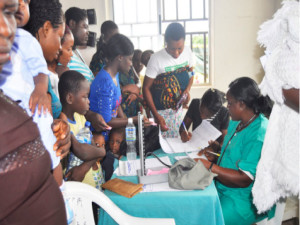 Nigeria grapples with basic hospital standards, which according to Dr. Lewis Oluwadamilola Akinola, Chairman, committee on medical education and standards of the Nigerian Medical Association is of grave concern , “The NMA are really worried about the state of our hospitals in Nigeria. The worry alarm is so audible, but incidentally the civil service bug of always noting all for action has eaten deep into our system, that hope of resuscitation is growing dim daily. The tertiary level of care is now overburdened with the provision of services that ordinarily is not their concern. It’s a shame. Patient care across government and private hospitals is most appalling. There’s no regard for the patients any longer, who pay through their nose to access basic health care needs.”
Nigeria grapples with basic hospital standards, which according to Dr. Lewis Oluwadamilola Akinola, Chairman, committee on medical education and standards of the Nigerian Medical Association is of grave concern , “The NMA are really worried about the state of our hospitals in Nigeria. The worry alarm is so audible, but incidentally the civil service bug of always noting all for action has eaten deep into our system, that hope of resuscitation is growing dim daily. The tertiary level of care is now overburdened with the provision of services that ordinarily is not their concern. It’s a shame. Patient care across government and private hospitals is most appalling. There’s no regard for the patients any longer, who pay through their nose to access basic health care needs.”
There are an estimated 6000 private and public healthcare providers in the country, some of which have designated Accident and Emergency (A&E) department with the associated services, while some have instituted public private partnership initiatives, all with the purpose of improve the standard of care for patients. However, according to assessments by the Bureau of statistics, Nigeria still has relatively high mortality rate and about 9,248,828 million cases of notifiable diseases were reported across the nation in 2014, 50 percent of which were credited to malaria and were fatal. When this is measured against current challenges in patient care management, it would seem it has become a dare for healthcare providers to adequately attend to healthcare needs.
Institute Honours Nigerian Researchers For Developing Typhoid Vaccine, Micro-Needles, Anti-Snake Venom
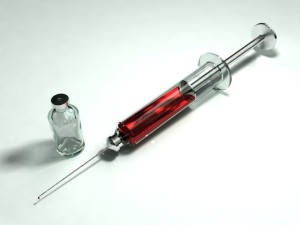 The International Institute for Training, Research and Economic Development (IITRED) has awarded prizes to three Nigerian researchers for developing typhoid fever vaccine, micro-needles and anti-snake venom respectively. The prizes were given at the 2015 Distinguished Research Seminar and IITRED Research Prize Award/Dinner on Thursday in Abuja. The recipients were Prof. Samuel Garba of Federal University of Technology, Minna, who developed typhoid vaccine and Dr Ololade Olatunji of University of Lagos, who developed micro-needles from fish scales. The third award recipient was Prof. John Aguiyi of the University of Jos, who developed anti-snake venom.
The International Institute for Training, Research and Economic Development (IITRED) has awarded prizes to three Nigerian researchers for developing typhoid fever vaccine, micro-needles and anti-snake venom respectively. The prizes were given at the 2015 Distinguished Research Seminar and IITRED Research Prize Award/Dinner on Thursday in Abuja. The recipients were Prof. Samuel Garba of Federal University of Technology, Minna, who developed typhoid vaccine and Dr Ololade Olatunji of University of Lagos, who developed micro-needles from fish scales. The third award recipient was Prof. John Aguiyi of the University of Jos, who developed anti-snake venom.
In a welcome address at the prize presentation, the Chairman of IITRED, Dr Hassan Adamu, said that the award was meant to promote local research and provide solutions to societal needs. Represented by Mr Abdulhameed Usman, the IITRED chairman decried the lack of support for local technology and innovations. He said “each year, IITRED reaches out to institutions in Nigeria to request for research nominations in areas that concern the society in order to stimulate demand-driven studies. “By doing this, we hope that some of the challenges bedevilling our quest for industrial growth will be solved through the findings of our outstanding researchers.
FG To Build 7 New Cancer Centres Across The Country By 2016 – Minister
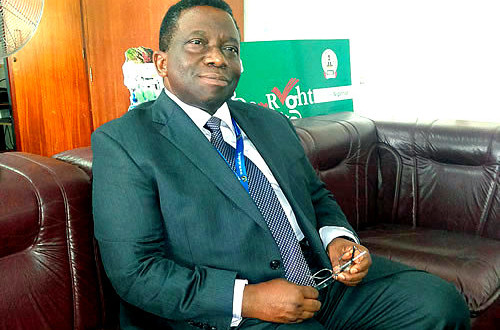 The Minister of Health, Professor Isaac Adewole has announced that the federal government will build seven more cancer treatment centers across the country by next year. Adewole stated this yesterday when he paid a surprise visit to the National Hospital in Abuja adding that the cancer centre at the hospital will be equipped to arrested medical tourism among Nigerians. “I’m impressed with the level of care in this 350-bed cancer centre, and Nigeria will work towards launching seven more cancer centres in the next one year.
The Minister of Health, Professor Isaac Adewole has announced that the federal government will build seven more cancer treatment centers across the country by next year. Adewole stated this yesterday when he paid a surprise visit to the National Hospital in Abuja adding that the cancer centre at the hospital will be equipped to arrested medical tourism among Nigerians. “I’m impressed with the level of care in this 350-bed cancer centre, and Nigeria will work towards launching seven more cancer centres in the next one year.
The Minister who was conducted round the hospital by the Chief Medical Director (CMD), Dr Audu Momoh said that the purpose of his visit was to access the efficiency of staff and the effectiveness of the hospital. Professor Adewole particularly inspected the accident and emergency unit, delivery suite and the Magnetic Reno cent imaging unit under construction, at the cancer centre. He urged the CMD to showcase the various services available in the hospital to Nigerians so as to cope medical tourism which is draining the resources of most patients who seek medical services abroad.
More...
 “Hepatitis” means inflammation of the liver. The liver is a vital organ that processes nutrients, filters the blood, and fights infections. When the liver is inflamed or damaged, its function can be affected. Hepatitis is most often caused by a virus. Heavy alcohol use, toxins, some medications, and certain medical conditions can also cause hepatitis. Hepatitis B virus infection has different clinical manifestations depending on the patient’s age at infection and immune status, and the stage at which the disease is recognized.
“Hepatitis” means inflammation of the liver. The liver is a vital organ that processes nutrients, filters the blood, and fights infections. When the liver is inflamed or damaged, its function can be affected. Hepatitis is most often caused by a virus. Heavy alcohol use, toxins, some medications, and certain medical conditions can also cause hepatitis. Hepatitis B virus infection has different clinical manifestations depending on the patient’s age at infection and immune status, and the stage at which the disease is recognized.
During the incubation phase of the disease, patients may feel unwell with possible nausea, vomiting, diarrhoea, anorexia and headaches. Patients may then become jaundiced although low grade fever and loss of appetite may improve. People who have symptoms generally feel quite ill and might need to be hospitalized. The symptoms are as follows; Yellowing of skin and whites of eyes, dark coloured urine, loss of appetite or nausea, bloated and tender belly, extreme tiredness, fever and pain in joints.
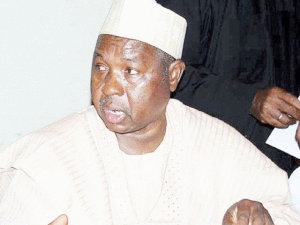 About 11, 404 persons are currently recieving HIV/AIDS treatment in Katsina State as at October this year, Governor Aminu Bello Masari has said. Speaking during the disbursement of the 3rd trench of HIV/AIDS fund grant to civil society organisations, Masari said the state has witnessed steady decline HIV prevanlence rate from 3.5% in 2001 to 0.7% in 2012. Masari who spoke through secretary to the state government, Mustapha Muhammad Inuwa, said his administration was committed to ensuring that HIV/AIDS intervention got deserved attention.
About 11, 404 persons are currently recieving HIV/AIDS treatment in Katsina State as at October this year, Governor Aminu Bello Masari has said. Speaking during the disbursement of the 3rd trench of HIV/AIDS fund grant to civil society organisations, Masari said the state has witnessed steady decline HIV prevanlence rate from 3.5% in 2001 to 0.7% in 2012. Masari who spoke through secretary to the state government, Mustapha Muhammad Inuwa, said his administration was committed to ensuring that HIV/AIDS intervention got deserved attention.
He said the state government has approved funds for the procurements of reagents for screening tests “before commencement and during follow up of treatment of people living with HIV/AIDS in the state”. Masari said government had presented an executive bill against stigma and discrimination to the state assembly so as to protect people living with the disease. He stressed that government has approved the disbursement of N53 million to 22 civil society organisation to enhance community interventions in local government areas.
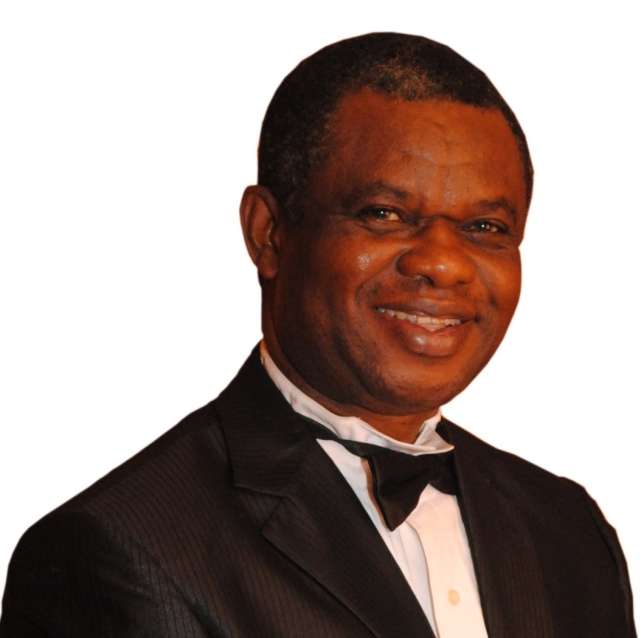 The Society of Gynecology and Obstetricians of Nigeria(SOGON), has described Female Genital Mutilation (FGM) as fundamental instruments of infringement of female reproductive rights. Prof. Joseph Adinma, President of the association, made the statement on Saturday in Abuja at an interactive session with newsmen to mark the end of the association’s 50th anniversary and 49th Annual General Meeting. Adinma expressed concern that a lot of Nigerians indulge in the practice out of ignorance and belief without knowing the dangers inherent in it.
The Society of Gynecology and Obstetricians of Nigeria(SOGON), has described Female Genital Mutilation (FGM) as fundamental instruments of infringement of female reproductive rights. Prof. Joseph Adinma, President of the association, made the statement on Saturday in Abuja at an interactive session with newsmen to mark the end of the association’s 50th anniversary and 49th Annual General Meeting. Adinma expressed concern that a lot of Nigerians indulge in the practice out of ignorance and belief without knowing the dangers inherent in it.
He said that the dangers inherent in the practice are contributing factors to fistula and maternal mortality in the country. "The practice is carried out with the intention to dominate, subordinate and make women feel inferior or incomplete, ’he said, adding that Nigeria contributes 25 per cent of the global burden of female genital mutilation. The president said that Nigeria had assented to the global decision to promote, protect and uplift women sexual and reproductive rights, adding that the only way to achieve this was through advocacy.
On World AIDS Day 2015, Executive Director of UNAIDS calls on countries to quicken the pace of action
 DURBAN/GENEVA, 1 December 2015—On World AIDS Day 2015, the Executive Director of UNAIDS, Michel Sidibé, has said that countries are on a countdown to ending their AIDS epidemics and that if swift and effective action is taken over the next five years, one by one they will break their epidemics so that they cannot rebound. Mr Sidibé made the remarks as he joined the Deputy President of South Africa, Cyril Ramaphosa, at South Africa’s national World AIDS Day event, which was held in the Ugu District of KwaZulu-Natal Province on 1 December.
DURBAN/GENEVA, 1 December 2015—On World AIDS Day 2015, the Executive Director of UNAIDS, Michel Sidibé, has said that countries are on a countdown to ending their AIDS epidemics and that if swift and effective action is taken over the next five years, one by one they will break their epidemics so that they cannot rebound. Mr Sidibé made the remarks as he joined the Deputy President of South Africa, Cyril Ramaphosa, at South Africa’s national World AIDS Day event, which was held in the Ugu District of KwaZulu-Natal Province on 1 December.
Introduced by Aaron Motsoaledi, the Minister of Health of South Africa, Mr Ramaphosa reflected on what World AIDS Day means to him: celebrating the courage of people living with HIV, evaluating the progress―or lack thereof―of the national AIDS response, recognizing partners and recommitting to the goal an HIV-free generation. “This is the time for all of us to rise, act and protect. As a nation we must rise to the challenge and be confident that we can succeed,” said Mr Ramaphosa. “Yes, we will be triumphant and yes, we will make progress. As a nation and as individuals we must act to support and encourage others, and we must protect ourselves and those near to us.”


